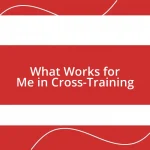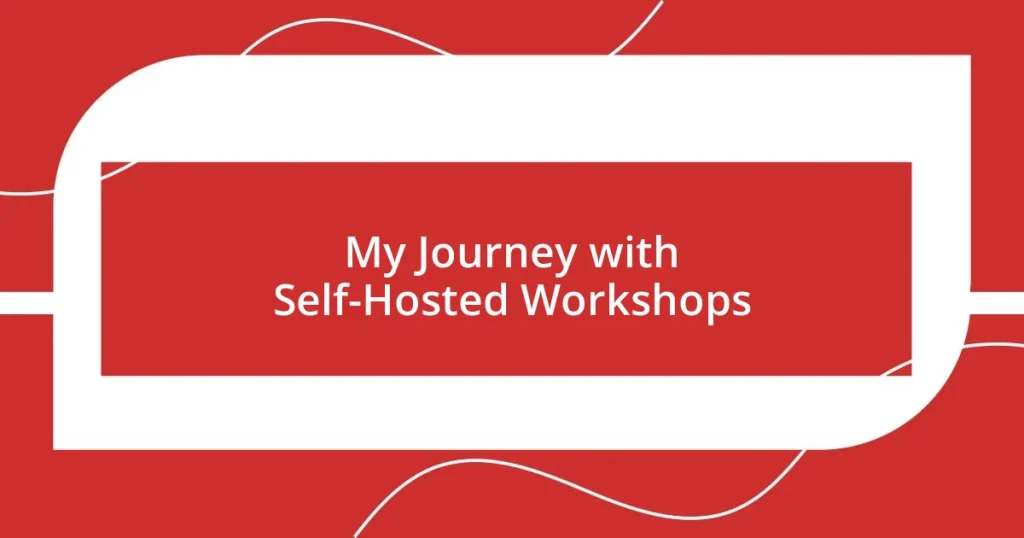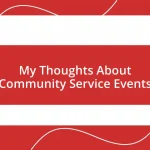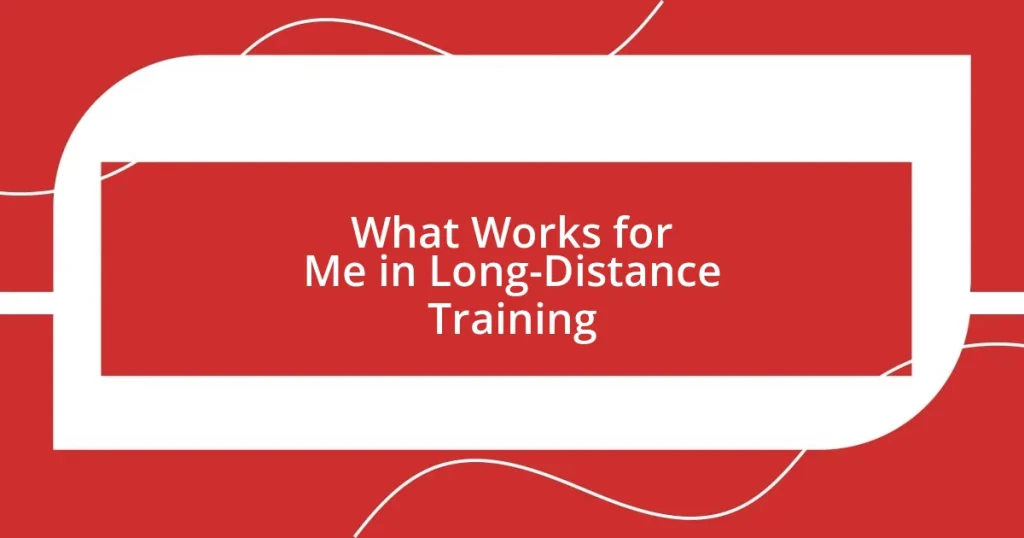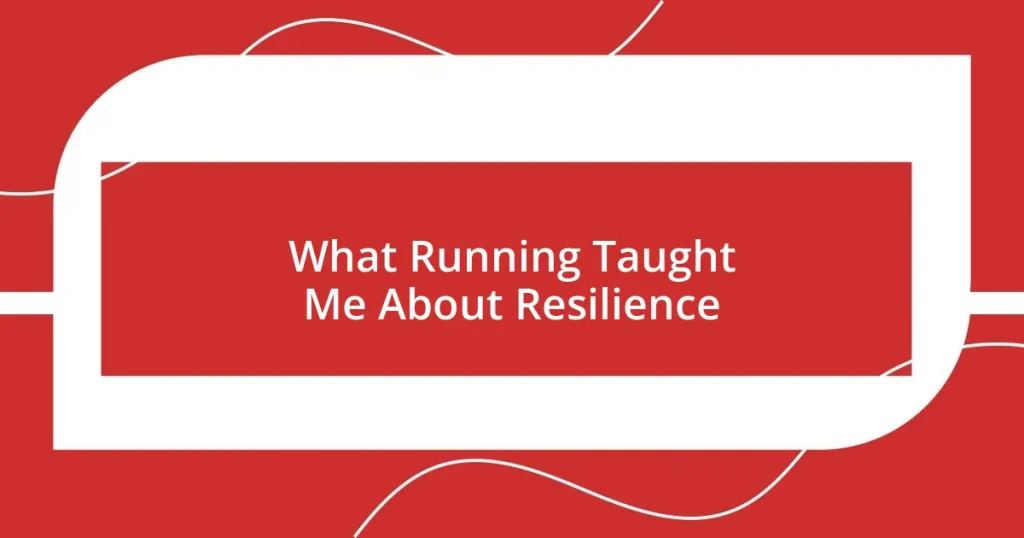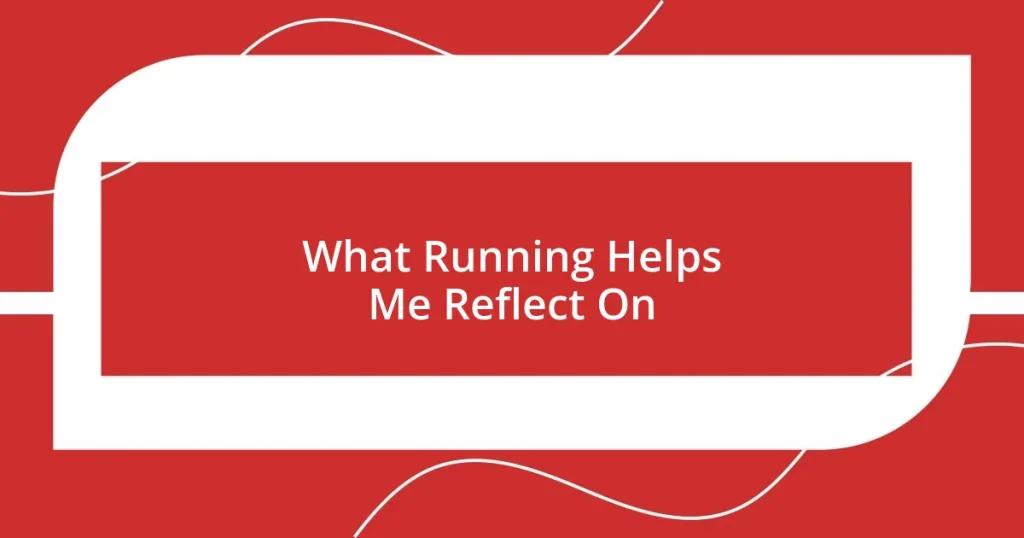Key takeaways:
- Self-hosted workshops allow for customization, enabling facilitators to align content and activities with their values and audience needs.
- Effective tools like Zoom, Trello, and Mentimeter enhance organization, participant engagement, and feedback collection during workshops.
- Promoting workshops authentically through social media, testimonials, and community engagement is essential for attracting participants.
- Continuous evaluation of participant feedback is crucial for improving future workshops and ensuring a meaningful learning experience.
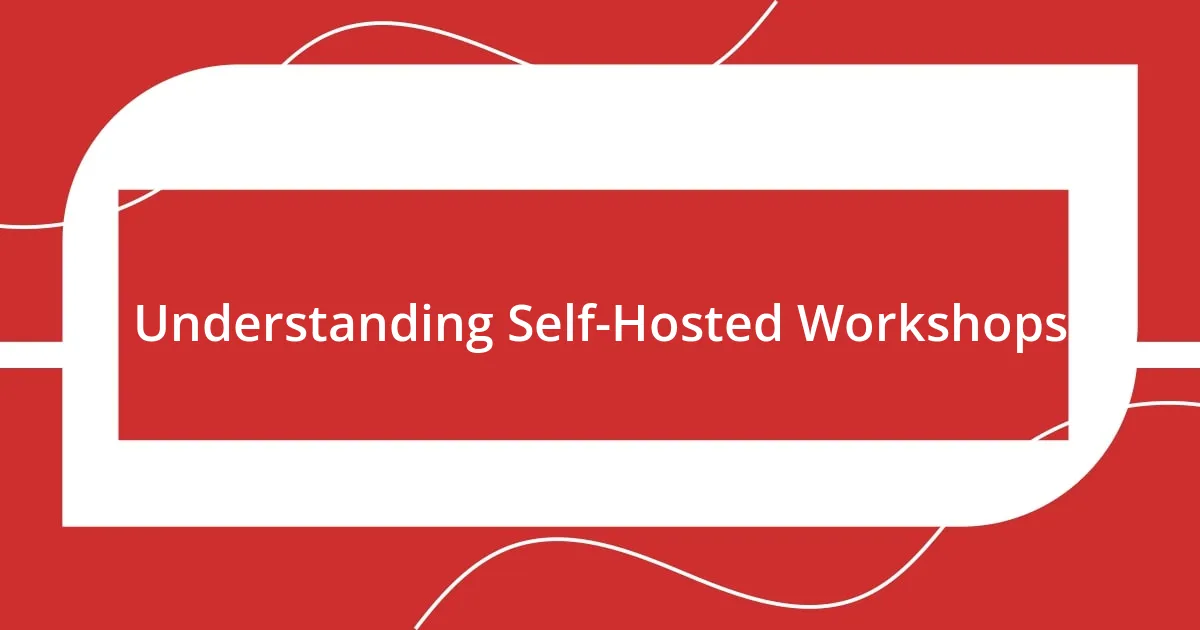
Understanding Self-Hosted Workshops
Self-hosted workshops offer a unique opportunity for individuals and organizations to craft their learning experiences from the ground up. When I first ventured into this realm, I felt both excitement and trepidation. What if no one showed up? But I soon discovered that the freedom to choose content, format, and location truly empowered me to create a workshop that resonated deeply with participants.
In my experience, the beauty of self-hosted workshops lies in the personal touch you can bring. Unlike traditional settings, you can infuse your values and creativity into every aspect, from the inviting design of the space to the engaging activities planned. I remember a particular workshop where I integrated storytelling; the atmosphere shifted dramatically, as participants opened up and shared their own experiences. It made me realize just how vital personalization is in fostering connection and learning.
As I navigated my self-hosted journey, I learned that understanding your audience is crucial. Have you ever found yourself in a workshop where the material just didn’t click? I have, and it was an eye-opener. Engaging with your participants beforehand not only tailors the content but also builds rapport, making them feel valued and heard.
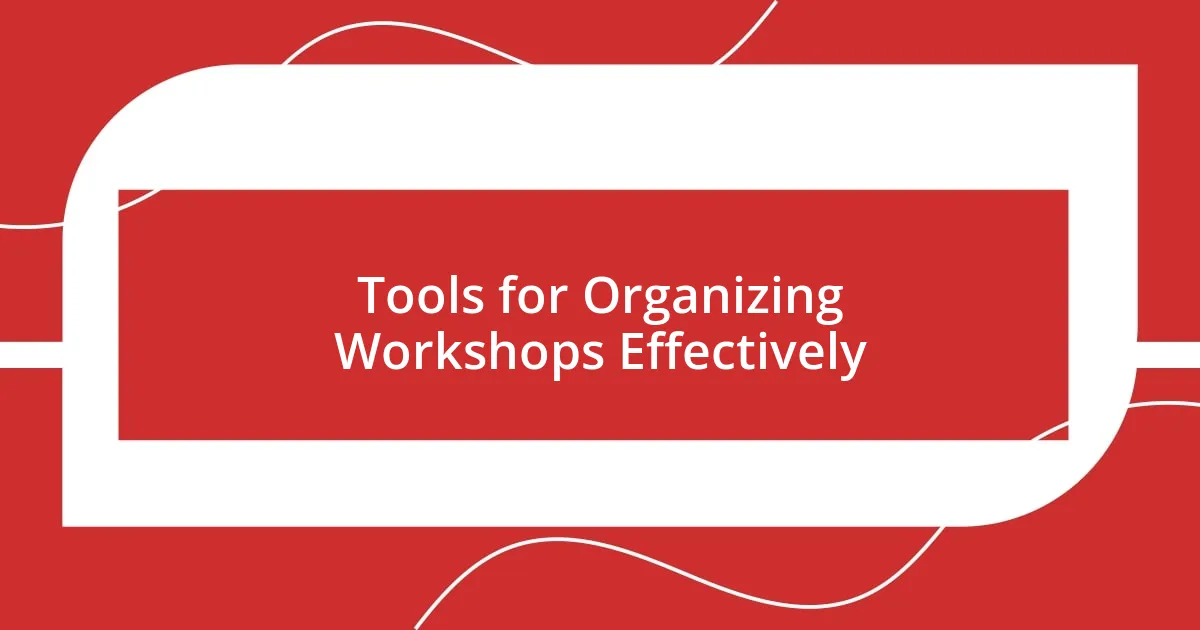
Tools for Organizing Workshops Effectively
Organizing workshops effectively hinges on utilizing the right tools. From my experience, platforms like Zoom and Google Meet have been game-changers. These tools not only facilitate virtual connections but also offer features like breakout rooms, which I find incredibly useful for small group discussions. I still remember a workshop where we employed breakout rooms, and the intimate conversations that sprang from it were nothing short of enlightening.
Collaboration and project management tools are equally essential for streamlining the planning process. Platforms such as Trello and Asana allow for organized task assignments and deadline tracking. When I first started using Trello to outline my workshop structure, I noticed a significant drop in my stress levels. Just seeing everything laid out in front of me made it easier to allocate time and resources effectively.
Lastly, engagement tools like Mentimeter or Slido can elevate the participant experience. These platforms allow for live polls and Q&A sessions, fostering a sense of involvement that I think participants crave. Reflecting on a recent workshop where I used Mentimeter to gather real-time feedback, I was struck by how the participants felt empowered to share their thoughts, completely transforming the dynamic of our discussion.
| Tool | Description |
|---|---|
| Zoom | Video conferencing with breakout rooms. |
| Trello | Project management tool for organizing tasks. |
| Mentimeter | Engagement tool for live polls and Q&A. |
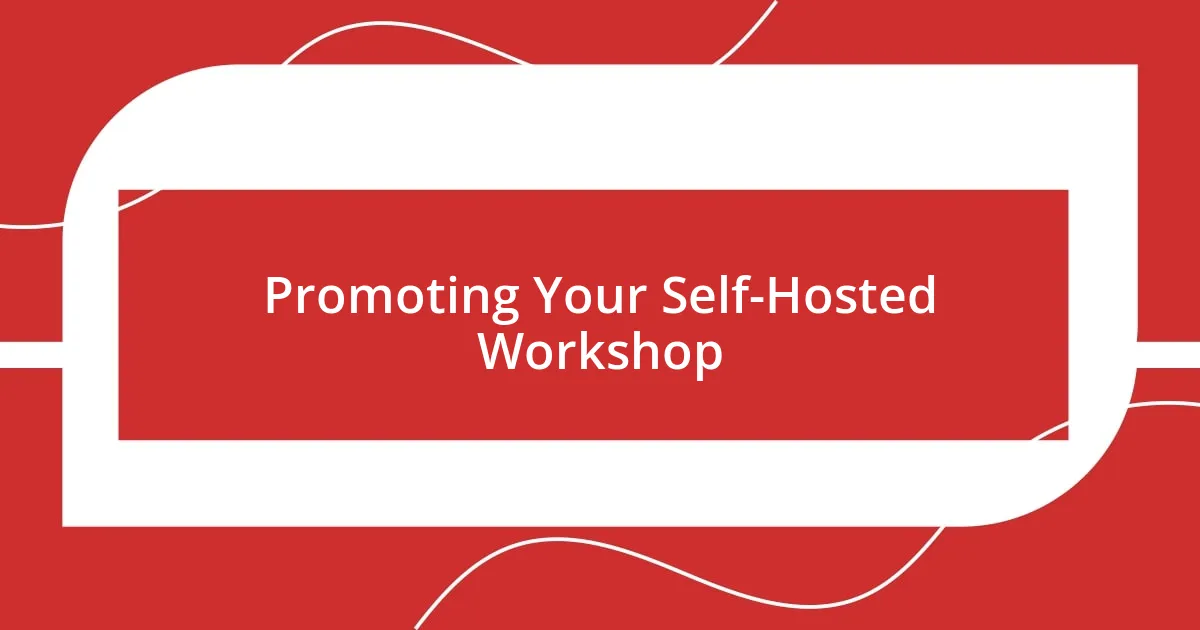
Promoting Your Self-Hosted Workshop
Promoting your self-hosted workshop is a critical step that can make or break the experience for both you and your attendees. I vividly remember a workshop I conducted where I initially struggled with marketing. After some trial and error, I realized that showcasing authentic testimonials from past participants worked wonders. It built credibility and sparked interest among potential attendees.
Here are some strategies to consider when promoting your workshop:
-
Leverage Social Media: Share behind-the-scenes moments, workshop sneak peeks, and participant testimonials. The more authentic your content, the more engaging it becomes.
-
Create an Event Page: I’ve found that a dedicated page with clear information on goals and benefits makes it easy for potential participants to sign up.
-
Email Campaigns: Send out personalized invites to your network, highlighting what unique experiences they can expect.
-
Collaborate with Influencers: Partnering with relevant figures can amplify your reach. I remember connecting with a local influencer who shared my event, resulting in a significant boost in registrations.
-
Engage in Online Communities: Forums and groups related to your workshop topic are great places to organically share your event and connect with interested participants.
Each of these strategies taps into the power of connection and community, something I’ve learned is essential in promoting successful workshops.
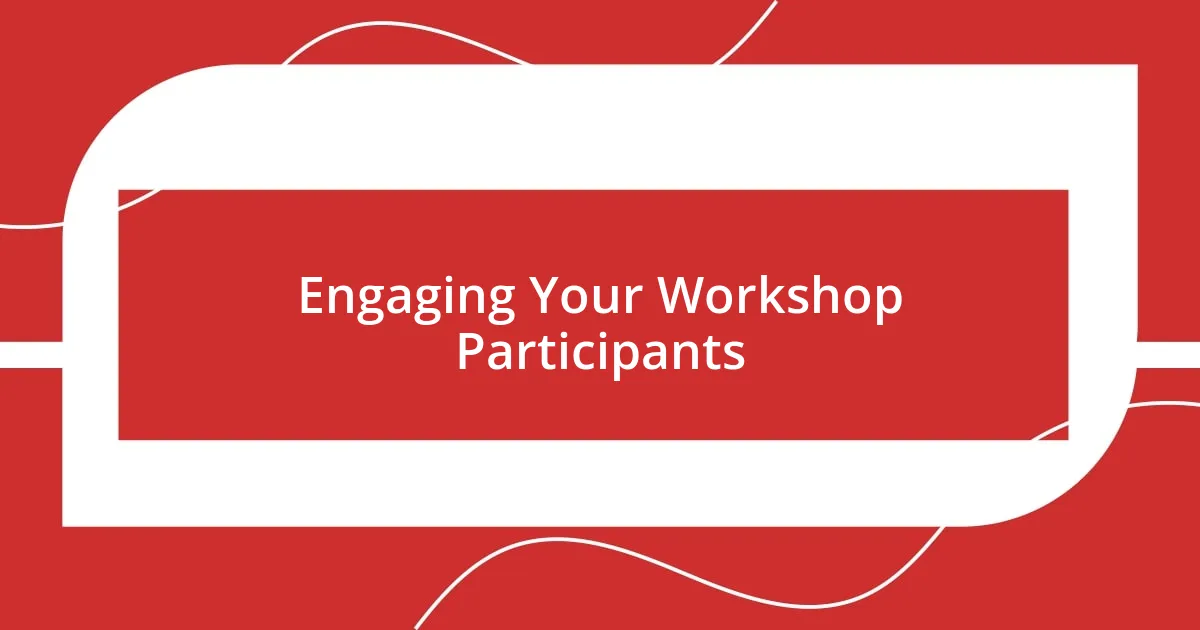
Engaging Your Workshop Participants
Engaging participants during a workshop is an art, and I’ve learned that creating a welcoming environment makes all the difference. I once led a session where I started by inviting everyone to briefly share something about themselves—something they hoped to gain from the workshop. The energy in the room shifted instantly; participants felt valued and connected to each other, which set a positive tone for the entire day.
Incorporating interactive elements keeps participants on their toes. For example, during a workshop on creative problem-solving, I introduced a brief group challenge where teams brainstormed solutions to a fictional scenario. Watching their faces light up as they collaborated was a true joy. It made me realize how crucial it is to break traditional lecture styles; people crave interaction and hands-on experience.
Lastly, I’ve found that regular check-ins throughout the workshop can really enhance engagement. Asking questions like, “How is everyone feeling about the material so far?” creates an atmosphere of inclusivity. I remember a workshop where I applied this technique, and a participant shared that they were struggling with a concept. Addressing that concern not only helped them but also enriched the entire group’s understanding, reinforcing my belief that engagement isn’t just beneficial—it’s necessary for everyone’s growth.
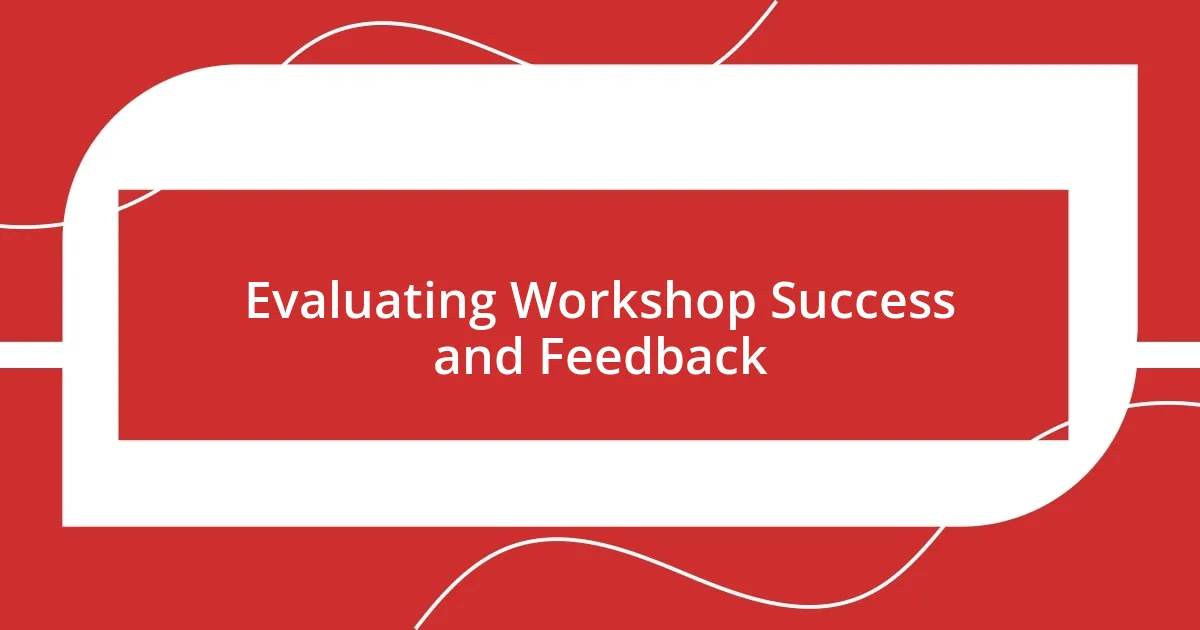
Evaluating Workshop Success and Feedback
Evaluating the success of a workshop goes beyond just attendance numbers; it’s about gauging participant satisfaction and learning outcomes. After each session, I make it a point to distribute feedback forms. One particular time, I was surprised to find that a segment I thought was my strongest was received lukewarmly. It drove home the lesson that assumptions about what engages attendees must be continually tested and reassessed.
I often rely on both quantitative and qualitative data to paint a complete picture of workshop success. Alongside numerical ratings, I encourage open-ended responses. A memorable comment from a recent workshop really struck me: a participant expressed how a simple activity brought clarity to a complex topic. Amidst the sea of scores, it’s these personal stories that form the backbone of my understanding and future planning.
Reflecting on this feedback isn’t just a checkbox; it’s a vital part of my growth as a facilitator. I believe in hosting follow-up conversations, perhaps over coffee or a casual Zoom chat, to dive deeper into their experiences. Have you ever noticed how genuine dialogue can unlock deeper insights? From my experience, these individual stories become an invaluable resource for enhancing my future workshops.



